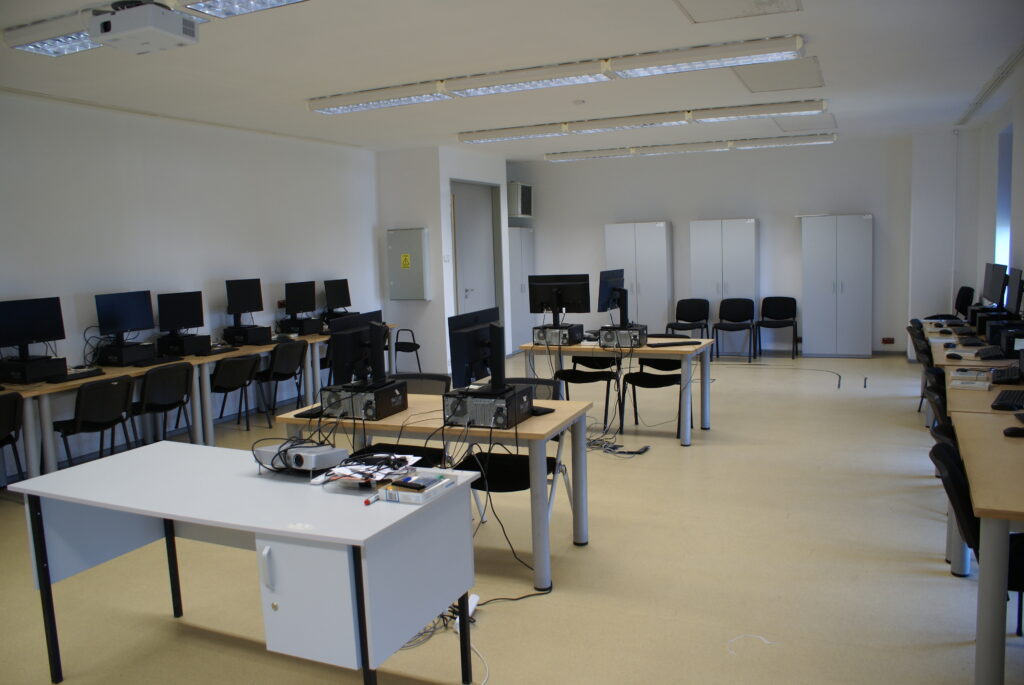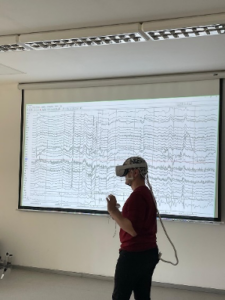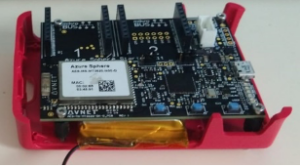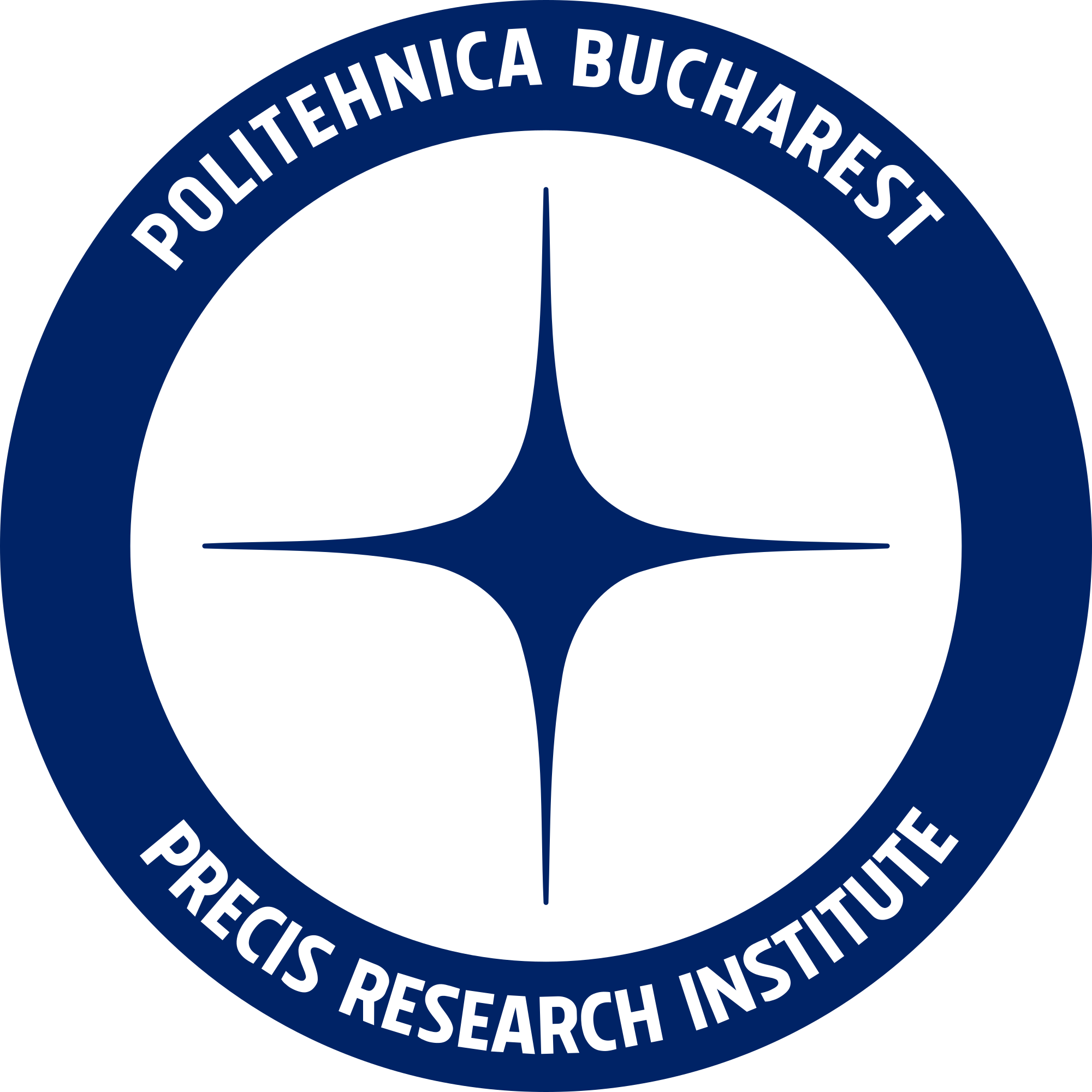Laboratory for reconfigurable high-confidence medical devices

The lab has as its main goal the development of innovative reconfigurable systems dedicated to the interoperability of different medical devices. It supports the multidisciplinary research and development level aiming to create high-confidence medical devices, software and systems. The medical IT system development causes a significant change of paradigm: if at first, it was a question only of passive devices controlled by a human operator, now we can speak about complex systems incorporating reconfigurable devices, sensors and actuators which dynamically control the medical functions and processes. All information taken from sensors, communication, reconfigurable modelling and calculation and perfect integration with physical elements and processes leads to a new class of “cyber-physical” systems with a high degree of functionality and adaptability.
 The services of this lab are achieved with the equipment composed of:
The services of this lab are achieved with the equipment composed of:
- eHealth sensor platform for Arduino, Raspberry PI and Intel Galileo dedicated to medical devices.
- Brain-Computer Interface systems by g.tec and BrainProducts
- Brain-Computer Interface Emotiv Systems (Scientific Contextual EEG)
- FPGA Artix-7 development boards
- 3D CubeX Trio printer
- CAD/CAM –Solid Works software
- USB Oscilloscopes, GPS Receptors, graphical displays, WiFi Interfaces, ultrasound detectors, digital gyroscopes, accelerometers, stepper motor controllers
- 20 workstations
- Development of complex systems that incorporate reconfigurable devices, sensors and actuators that will dynamically control medical functions and processes
- Applications based on Brain-Computer Interfaces
- Smart sensor-based medical system for monitoring vital signs (IOT application).
- Expert system for EKG
- Mobile agents based on fuzzy logic for searching with elastic search algorithms.
- Applications for visually impaired people based on voice recognition in Romanian.
- High performance processing in data acquisition systems
- Hardware accelerator for neural networks
- Parallel processing using Raspberry Pi
- Image processing using a cluster of Raspberry Pi boards. Analysis of the performance of algorithms in distributed environments.
- Advanced neuro-fuzzy techniques in modern medicine.
- Self-organizing fuzzy intelligent systems
- Systems dedicated to medical rehabilitation (design/implementation)
- AI-based automatic evaluation of medical data (system design, hybrid methods development)
- Intelligent control systems for hyper-redundant robots applied in medicine
Projects:
- Horizon 2020, No. 813278, “A-Wear – A network for dynamic WEarable Applications with pRivacy constraints”, H2020 MSCA-ITN- EJD, 2019-2022.
- “Creation, Operational and Development of the National Center of Competence in the field of Cancer Crearea, operationalizarea si dezvoltarea Centrului National de Compententa in domeniul cancerului “ – CNCC (ID: 220234723, 2022-2026)
- AI-based infrastructure for “YOUNGREENTECO – Young Green Entrepreneurship Ecosystem”, Erasmus Plus – Strategic Partnership 2023-2-TR01-KA220-YOU-000185426
- „An Intelligent Haptic Robot Glove for the Patients Suffering a Cerebrovascular Accident”(2016).
- „High Performance Computing of Personalized Cardio Component Models – HEART” (2015)
- “Embedded systems of neural-prosthesis type for the recovery of handicapped people (SINPHA)” (2013).
- “Technological control and integration of intelligent materials and structures (CITMSI)” (2012)
Brain Computer Interface experiments

AWEAR bracelet for automatic AI-based Parkinson evaluation


IHRG prototype of haptic robotic glove for hand recovering

The team belonging to Reconfigurable High-Confidence Medical Devices Lab:
- Nirvana Popescu
- Decebal Popescu
- Vlad Ciobanu
- Cornel Popescu
- Rares Ifrim
- Alexandru Dragos Adam
- Cosmin Alioanei
- Madalina Barburescu
- Costin Raileanu

